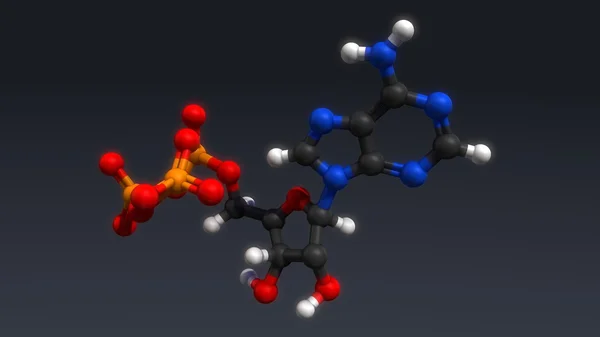Our brain relies heavily on the chemical compound adenosine to signal to our body that it’s time to get a little sleep.
Firstly, adenosine is one of the four nucleoside building blocks of RNA, which are essential for life. Adenosine is also part of the complex molecule ATP (adenosine triphosphate). ATP is crucial for the breakdown of the sugars glucose and glycogen and also for the release of energy. ATP is our body’s source of fuel, and adenosine is crucial for our ability to reach deep sleep. Once enough adenosine builds up in or system, it generates the impulse to sleep. This is referred to as Sleep Pressure, or ‘Process S’.
Secondly, when we’re asleep, adenosine is broken down and eliminated from our system. As adenosine levels fall, the chemicals associated with wakefulness and alertness rise. This results in the decreased need to sleep, and the ability to wake up feeling rejuvenated.
One way to block adenosine is by consuming caffeine. Caffeine blocks the adenosine receptors; however, it does not block the buildup of adenosine in our system. Therefore, once the effect of caffeine wears off, it can cause an overwhelming sensation of sleepiness. Many people refer to this as the ‘crash’ of caffeine and other stimulants.

There are several ways that people can help avoid this caffeine crash:
- Avoid taking caffeine on an empty stomach
- Spread your caffeine consumption throughout the day
- Stay hydrated
- Limit your urge for caffeine by getting a better night’s sleep
If you’d like to learn more about the effects of adenosine and caffeine, then you can check out this YouTube podcast by Dr. Andrew Huberman — Professor of Neuroscience at Stanford University.
You can also learn more tips and tricks to get a better night’s sleep by downloading our Better Sleep Journal.

